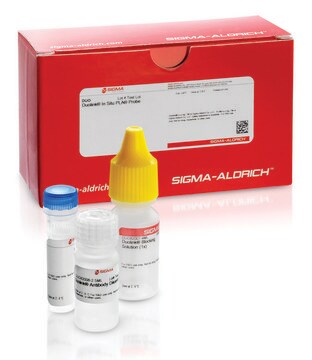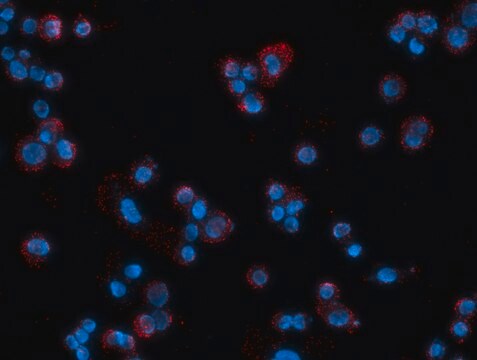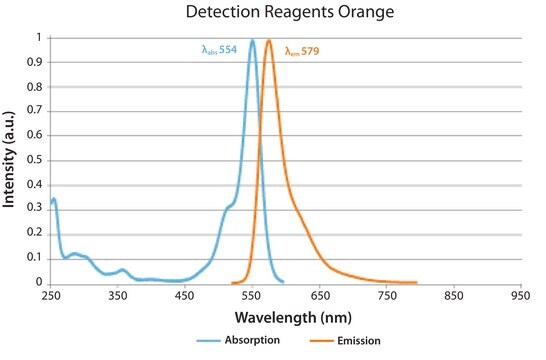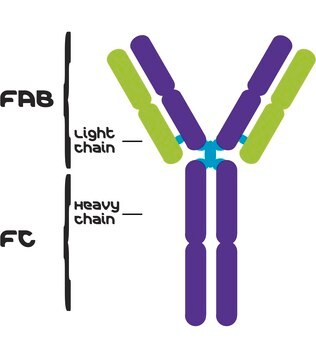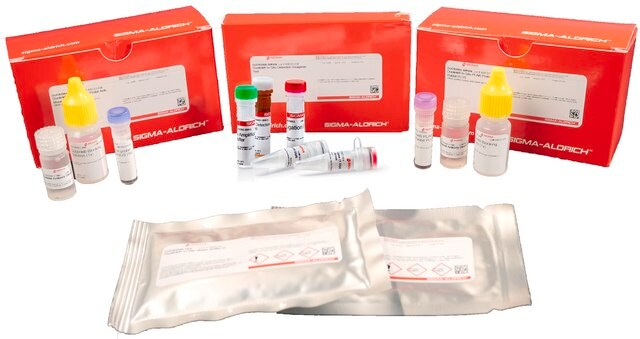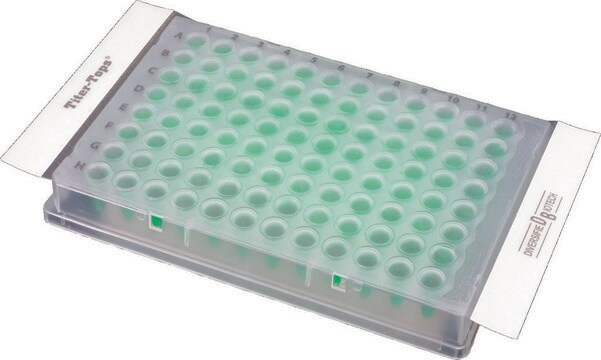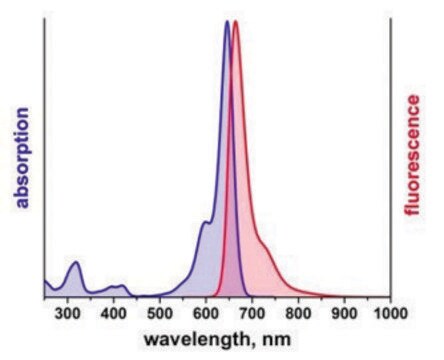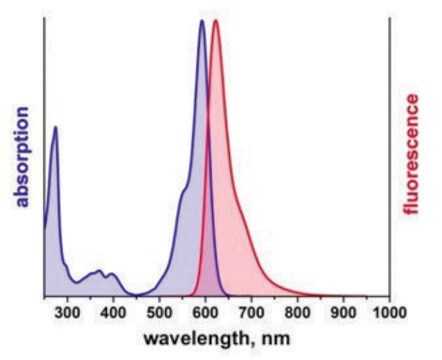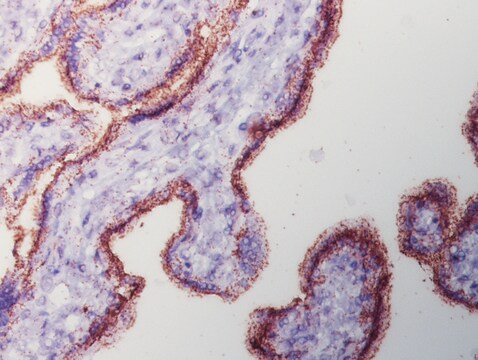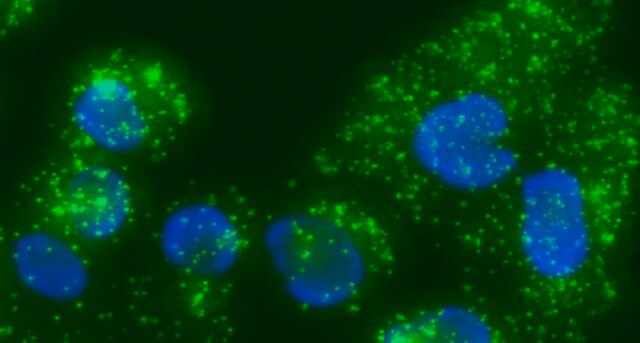DUO92020
Duolink® In Situ PLA® Probe Anti-Human PLUS
Affinity purified Donkey anti-Human IgG (H+L)
Synonyme(s) :
in situ Proximity Ligation Assay, Protein Protein Interaction Kit
About This Item
Produits recommandés
Source biologique
donkey (Polyclonal)
Forme d'anticorps
affinity purified immunoglobulin (Secondary antibody)
Gamme de produits
Duolink®
Espèces réactives
human
Technique(s)
immunofluorescence: suitable
proximity ligation assay: suitable
Adéquation
suitable for brightfield
suitable for fluorescence
Conditions d'expédition
wet ice
Température de stockage
2-8°C
Application
This product can be applied to both the Duolink® In Situ Fluorescence Protocol and the Duolink® In Situ Brightfield Protocol depending on the detection reagents used.
Visit our Duolink® PLA Resource Center for information on how to run a Duolink® experiment, applications, troubleshooting and more.
To perform a complete Duolink® PLA® in situ experiment you will need two primary antibodies (PLA, IHC, ICC or IF validated) that recognize two target epitopes. Other necessary reagents include a pair of PLA probes from different species (one PLUS and one MINUS), detection reagents, wash buffers, and mounting medium. Note that the primary antibodies must come from the same species as the Duolink® PLA probes. Analysis is carried out using standard immunofluorescence assay equipment.HRP is also available for brightfield detection.
PLA probe anti-Human reacts with whole molecule human IgG and the light chains of other human immunoglobulin?s. The PLA Probe Anti-Human Plus has minimal cross-reactivity with bovine, chicken, goat, guinea pig, Syrian hamster, horse, mouse, rabbit, rat, and sheep serum proteins. A MINUS probe of a different species must be used simultaneously with this product. See our Product Selection Guide for more information.
Application Note
Two primary antibodies raised in different species are needed. Test your primary antibodies (IgG-class, mono- or polyclonal) in a standard immunofluorescence (IF), immunohistochemistry (IHC) or immunocytochemistry (ICC) assay to determine the optimal fixation, blocking, and titer conditions. Duolink® PLA in situ reagents are suitable for use on fixed cells, cytospin cells, cells grown on slide, formalin-fixed, paraffin embedded (FFPE), or tissue (fresh or frozen). No minimum number of cells is required.
Let us do the work for you, learn more about our Custom Service Program to accelerate your Duolink® projects
View full Duolink® product list
Caractéristiques et avantages
- No overexpression or genetic manipulation required
- High specificity (fewer false positives)
- Single molecule sensitivity due to rolling circle amplification
- Relative quantification possible
- No special equipment needed
- Quicker and simpler than FRET
- Increased accuracy compared to co-IP
- Publication-ready results
Composants
- 5x PLA Probe Anti-Human PLUS - Donkey anti-human secondary antibody conjugated to oligonucleotide PLUS
- 1x Blocking Solution - Reagent for blocking of the sample
- 1x Antibody Diluent - For dilution of PLA probes and primary antibodies
See datasheet for more information.
Informations légales
Mention d'avertissement
Warning
Mentions de danger
Conseils de prudence
Classification des risques
Aquatic Chronic 2 - Skin Sens. 1
Code de la classe de stockage
10 - Combustible liquids
Classe de danger pour l'eau (WGK)
WGK 3
Faites votre choix parmi les versions les plus récentes :
Déjà en possession de ce produit ?
Retrouvez la documentation relative aux produits que vous avez récemment achetés dans la Bibliothèque de documents.
Les clients ont également consulté
Articles
Things to consider for preparation, setup and execution of the Duolink® assay protocol
Support information including tips and tricks, frequently asked questions, and basic troubleshooting.
Protocoles
Protocol for use of Duolink® PLA reagents for the detection of individual proteins, protein modifications, and protein-protein interactions within cell populations by flow cytometry.
Notre équipe de scientifiques dispose d'une expérience dans tous les secteurs de la recherche, notamment en sciences de la vie, science des matériaux, synthèse chimique, chromatographie, analyse et dans de nombreux autres domaines..
Contacter notre Service technique